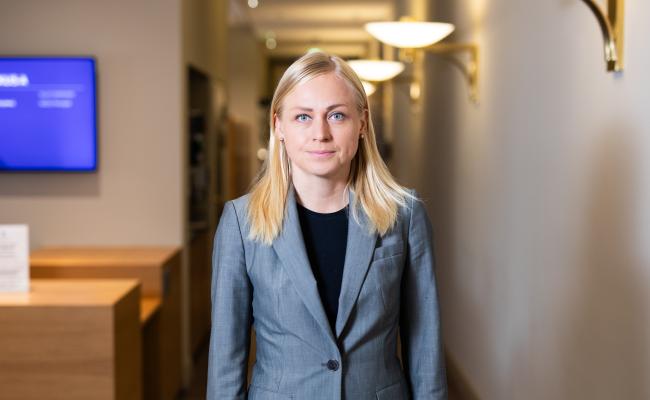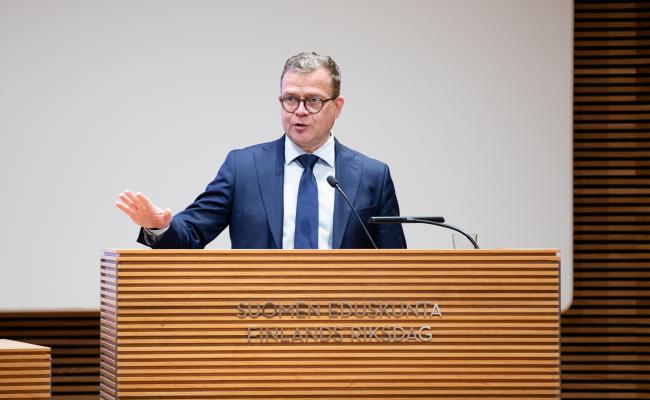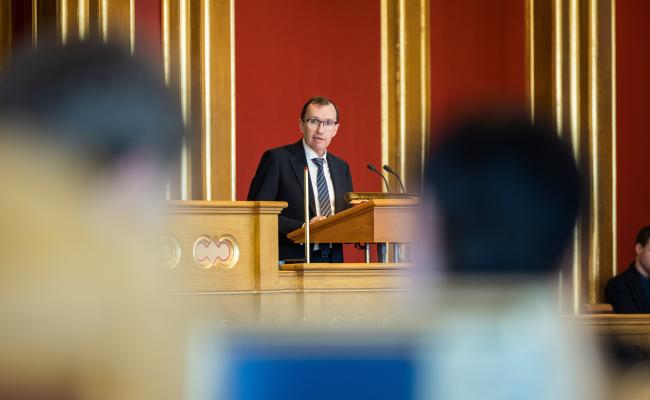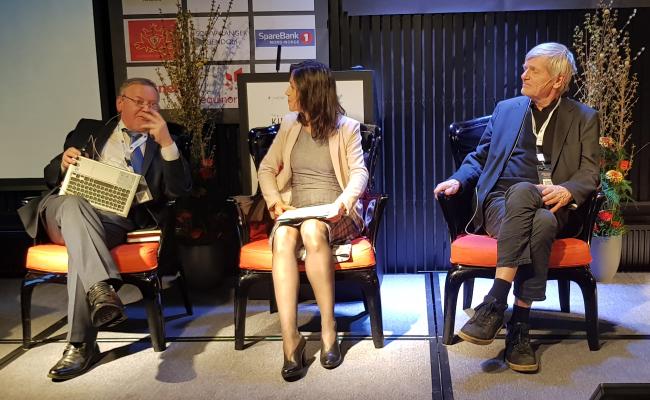Norwegian Regional Leaders: Seeks New Solution for Northern Nordic Cooperation
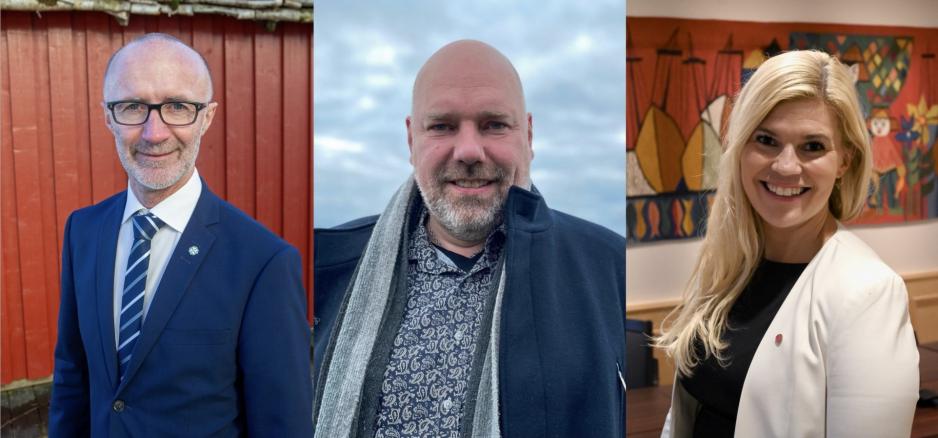
Regional leaders in Northern Norway (from left): Svein Øien Eggesvik (Center), Chair of the County Government in Nordland; Hans-Jacob Bønå (Conservatives), Finnmark County Mayor; and Kristina Torbergsen (Labor), Troms County Mayor. (Photos: Thor-Wiggo Skille/Nordland County; Karoline Sørensen Brandzæg/Finnmark County Authority; Victor Omma/Troms County)
Finland is leaving the Barents Euro-Arctic Council, which also impacts the Barents Regional Council. A new form of cooperation that encompasses both regional and national levels should be created across the Cap of the North, believes the regional political leaders in Northern Norway.
What remains of the Barents cooperation after Russia's exit last fall is now fraying around the edges as Finland will also withdraw from the Barents Euro-Arctic Council (BEAC) after 2025.
The BEAC is the framework for intergovernmental cooperation in the Barents region between, for now, Finland, Norway, Sweden, Denmark, Iceland, and the European Commission.
At the interregional level, the Barents Regional Council now gathers nine regional units and indigenous representatives from northern parts of Finland, Norway, and Sweden. The Russian regions are currently not active in the council.
"The Barents Regional Council is an independent unit within the Barents cooperation and may continue its work also after Finland's withdrawal at the end of 2025. We understand that our decision can impact their participation," says Marja Joenusva, Finland's Barents Ambassador, to High North News.
In other words, the Finnish regions Lapland, Oulu region, Kainuu and North Karelia can choose to continue cooperation with their Northern Norwegian and Northern Swedish counterparts.
Without Finland, the Barents cooperation is not fruitful.
But is the Barents cooperation beneficial without Finnish participation at a national level?
"No. Without Finland, the Barents cooperation is not fruitful. We need to build a new cooperation structure in the northern Nordic region. This is by and large a joint desire at a regional level in Norway, Sweden, and Finland, but we must have the national level on our side," says Svein Øien Eggesvik (Center), Chair of the County Government in Nordland, to HNN.
Two essential pillars
Hans-Jacob Bønå (Conservatives), the Finnmark County Mayor, makes a similar statement:
"The Barents cooperation structure is unique as both the national and regional levels are part of the cooperation. I believe the success of the Barents cooperation can be owed to national authorities giving us direction in the cooperation. It has provided the regions with necessary anchoring and support, both economically and practically, says Bønå and continues:
"The withdrawals, first Russia and now also Finland, means that we must find a new cooperation format that ensures the regional and national perspective on the community in the northern Nordic region."
The Troms County Mayor, Kristina Torbergsen (Labor), awaits a clear conclusion but also emphasizes the significance of regional and national interaction.
Also read (the article continues below)
"The success factor is that the Barents cooperation is built around close collaboration between the regional and national levels, including through joint working groups with members from both management levels. It facilitates efficient cooperation and good dialogue," Torbergsen points out and continues:
"Since only Sweden and Norway remain in the Barents cooperation, a possible further cooperation structure must be discussed with the Swedish side. Therefore, it is too early to comment on the possible continuation of this cooperation."
Close dialogue
Eggesvik, Torbergsen, and Bønå say they have a close dialogue with the Norwegian MFA on border-crossing collaboration in the North, as State Secretary Maria Varteressian (Labor) stated.
"We are working to find a joint Norwegian position for developing cooperation in the northern Nordic region through the government's regional High North forum. I find that we on the Norwegian side are well aligned both at the national and regional levels when it comes to the need for cooperation and what we should and can cooperate on," Bønå points out.
"We have discussed well and know each other's views," Torbergsen notes.
The most favorable thing would be for Finland to first present a proposal of which they have ownership.
The regional High North forum gathers political leadership in the Ministry of Local Government and Regional Development, the Ministry of Foreign Affairs, and the Ministry of Trade, Industry, and Fisheries, as well as political leadership in the northern Norwegian countries and the Sámi Parliament. The parties meet twice a year in Northern Norway.
"When we met in this forum two weeks ago, we discussed proposals for further processes around a framework for enhanced cooperation in the northern Nordic region. In my opinion, the most favorable thing would be for Finland to first present a proposal of which they have ownership. Then we can jointly develop a solution using that as a starting point," says Eggesvik.
Possible formats
At the same time, the Chair of the County Government in Nordland outlines two possible alternatives to the Barents Regional Council
“We have the Cap of the North Council [Nordkalottrådet/Pohjoiskalotin Neuvosto], but it would have to be significantly expanded. Currently, it comprises the three northern Norwegian counties, Lapland in northern Finland and Norrbotten in northern Sweden, and mainly revolves around reducing border barriers. To develop stronger cooperation in the North, this council must include more Finnish and Swedish regions and include new working areas," says Eggesvik and continues:
"From Nordland County's side, we would be happy to see a Norwegian-Finnish-Swedish High North forum, a framework for regional and national authorities to meet once a year to discuss which development is needed and what can be done to manage various border barriers."
"With NATO's Nordic enlargement as the major driving force, a stronger East-West cooperation allows great opportunities within defense and infrastructure, industry, research and development, and culture. We are in a time of transition, but we want a predictable and stable cooperation structure for the future," he emphasizes.



